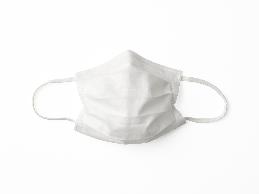In light of the COVID-19 pandemic, many employees, both with and without disabilities, are wearing facial masks to help prevent the spread of infectious disease. During this time, it is crucial to uphold the latest guidance from the Centers for Disease Control (CDC) regarding health and safety. This can create new and challenging questions about how to accommodate both those who need masks because of a disability and cannot acquire them due to shortage in supplies, as well as those for whom wearing a mask is contraindicated due to a disability. Both employees and employers alike may have various questions about masks and disability-related workplace needs. A few common questions on this topic are addressed below.
If I have pre-existing condition, can I wear a mask at work as an accommodation?
Employees with disabilities are entitled to reasonable accommodation under Title I of the Americans with Disabilities Act, absent undue hardship to the employer. Those with compromised immune systems who may be more vulnerable to infection may need to work with their employer to determine appropriate accommodations. Masks are one option to consider. Whether the employer must allow the use of a mask will depend on the situation. There may be some jobs that are not conducive to mask use. For example, those who spend a great deal of time using the telephone during work may have difficulty wearing a mask as it could impact their ability to speak clearly. If this is the case, the employer must still explore alternative accommodations, such as private workstations, on a case-by-case basis.
I cannot safely wear a mask due to a disability. Can my employer make me wear a mask at work?
According to guidance from the Equal Employment Opportunity Commission, employers may be able to insist that employees wear protective gear in light of a pandemic. However, they must consider providing modified or alternative protective gear (absent undue hardship) if needed due to a disability. See the following from the EEOC’s What You Should Know About COVID-19 and the ADA, the Rehabilitation Act, and Other EEO Laws.
G.2. An employer requires returning workers to wear personal protective gear and engage in infection control practices. Some employees ask for accommodations due to a need for modified protective gear. Must an employer grant these requests?
An employer may require employees to wear protective gear (for example, masks and gloves) and observe infection control practices (for example, regular hand washing and social distancing protocols).
However, where an employee with a disability needs a related reasonable accommodation under the ADA (e.g., non-latex gloves, modified face masks for interpreters or others who communicate with an employee who uses lip reading, or gowns designed for individuals who use wheelchairs), or a religious accommodation under Title VII (such as modified equipment due to religious garb), the employer should discuss the request and provide the modification or an alternative if feasible and not an undue hardship on the operation of the employer's business under the ADA or Title VII.
The ADA does not prohibit employers from complying with other federal laws, such as the Occupational Safety and Health Act, which requires employees working in certain jobs, industries, or positions to wear particular items of clothing or protective gear.
Employees who have concerns about the safety of mask usage should consult their medical provider. It may be helpful to determine whether another type of facial covering, such as a shield or visor, would be sufficient to meet the employee’s needs as well as the employer’s requirements.
What if wearing a mask exacerbates my anxiety disorder (e.g., claustrophobia)?
Employees who experience difficulties wearing a mask due to a qualified disability, which may include mental health conditions such as anxiety disorders, may request a reasonable accommodation. Employers have an obligation to explore accommodation options related to mental health in the same way they do with other disabilities and medical conditions. Ideas might include allowing flexible breaks to receive fresh air, permitting telework, or temporarily reassigning to a role that will allow the ability to telework or limit the need to wear a mask. Accommodation solutions should be considered on an individualized and case-by-case basis.
If my disability prevents me from wearing a mask, what other options can be considered?
The employer’s obligation to provide reasonable accommodation is ongoing and does not stop simply because one option is not feasible. The interactive process should continue with additional dialogue regarding alternatives to masks such as telework, leave, and flexible scheduling. If a particular accommodation would result in an undue hardship, an employer is not required to provide it, but still must consider other accommodations that do not pose an undue hardship.


